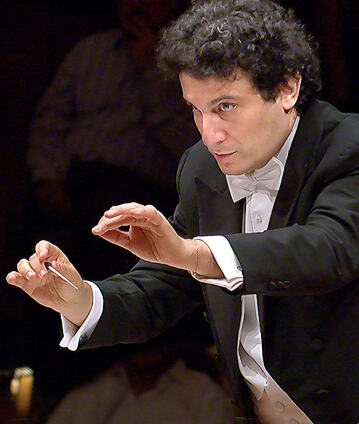Alain Altinoglu debuts with the Berliner Philharmoniker

The transition to Modernism is one of the most exciting phases in musical history. In this concert, works by Maurice Ravel, Béla Bartók, Claude Debussy and Albert Roussel reveal the richness of late Romanticism combined with originality and pioneering spirit. Alain Altinoglu, the “sensitive magician of timbre” (Süddeutsche Zeitung), makes his debut conducting the Berliner Philharmoniker with Máté Szűcs as the soloist in Bartók’s Viola Concerto.
On this evening, Alain Altinoglu conducts the Berliner Philharmoniker for the first time. Born in Paris in 1975, the conductor, described by the Süddeutsche Zeitung as a “sensitive magician of timbre”, has been music director of the Théâtre Royal de la Monnaie in Brussels since the 2016/17 season. In addition to the leading orchestras of his home town, he has also appeared with major orchestras and at opera houses in Europe and the USA. In addition to his conducting activities, he also has an interest in lieder; he regularly accompanies the mezzo-soprano Nora Gubisch at the piano. The main item on his debut programme with the Philharmoniker is Béla Bartók’s final composition, his Viola Concerto.
“The sad thing is that I leave with so much more to say,” Bartók is reported to have said to a doctor shortly before his death. How much music the composer still had in him in the last days of his life can be heard in his opus postumum. It was written at the request of the Scottish violist William Primrose. At the beginning of 1945, he approached the composer with a request to write a concertante work for him, and immediately tried to remove any doubts Bartók may have had regarding the viola as a solo instrument: Primrose wrote on 22 January, “Please do not feel in any way proscribed by the apparent technical limitations of the instrument. I can assure you that they belong to the day when the viola was merely a ‘penzions instrument’ & no longer, in reality, exist”. Bartók’s health problems and work on his Third Piano Concerto meant the project only took shape in the August of that year. Two weeks before his death, the composer then wrote full of enthusiasm to Primrose: “I am delighted to be able to tell you that your viola concerto is ready in draft, so that only the score has to be written, which means a purely mechanical work, so to speak. If nothing happens I can be finished in 5 or 6 weeks.”
However, Bartók was not given the opportunity to write the score: At his death on 26 September 1945, the composer left only 13 pages of sketches which the violist, composer and conductor Tibor Serly, who had been a friend of the composer since 1942, was later commissioned by Bartók’s London publisher Boosey & Hawkes to turn it into a performable form. The soloist in these three Philharmoniker concerts of Bartók’s swan song is a fellow countryman of the composer, the orchestra’s own first principal viola, Máté Szűcs. As a contrasting frame for the Bartók, Alain Altinoglu has programmed music by French composers: To open the concert, he conducts Maurice Ravel’s Rapsodie espagnole and, after the interval, two orchestral suites from stage works by Claude Debussy and Albert Roussel.
© 2017 Berlin Phil Media GmbH
Related interviews
Artists
Our recommendations
- Semyon Bychkov conducts Strauss and Schubert
- “Late Night” concert with Simon Rattle
- An evening of chamber music with Christian Tetzlaff and members of the Berliner Philharmoniker
- Alain Altinoglu conducts Stravinsky and Bizet
- Philharmonic chamber music: In search of the “I”
- Christian Thielemann conducts Bruckner’s Eighth Symphony